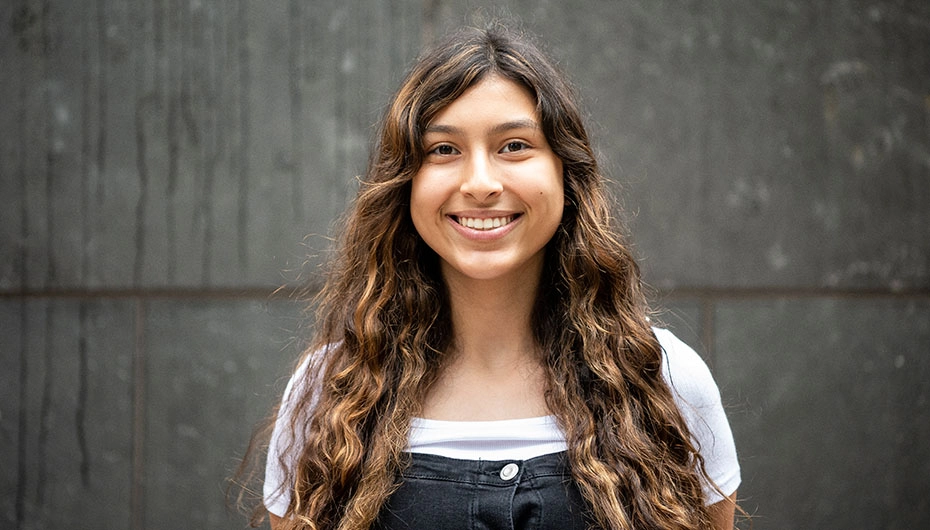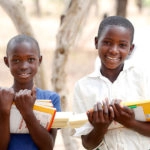Media Centre - Media release - 23 September 2020
Nine in ten girls experiencing anxiety due to COVID-19 pandemic, global survey reveals

Girls and young women are bearing the brunt of the secondary impacts of COVID-19, with 95% of girls saying the pandemic has impacted their lives in a negative way
- Nine in ten girls surveyed globally are feeling high or medium levels of stress or anxiety as a result of the COVID-19 pandemic according to research involving 7000 girls in 14 countries
- Plan International Australia youth activist, Mayela Dayet, 16, is representing girls worldwide at a high level briefing tonight (Wednesday 23 September) at the United Nations General Assembly virtual event, including presenting the findings of this report and girls’ roadmap for a better future.
Nine in ten girls (88%) say they are feeling high or medium levels of anxiety as a result of the COVID-19 pandemic, according to a landmark survey – involving over 7,000 girls in 14 countries – conducted by the charity for girls’ equality, Plan International.
The biggest concerns for girls surveyed, aged 15-19, was the impact on their health (33%) and the wellbeing of their families (40%). Nearly a third (26%) were worried about the loss of household income due to the pandemic.
Halting Lives: The Impact of COVID-19 on Girls and Young Women is the most extensive study of its kind focusing on the impact of the COVID-19 pandemic on girls from 14 countries including Spain, India, Ghana, Brazil and the USA.
The research shines a light on the complex challenges girls are facing, ranging from the impact on their education to their ability to leave home and socialise.
- 62% of girls surveyed said they were struggling as a result of not being able to go to school or university.
- More than half (58%) of girls are feeling the negative effects of not being able to leave the house regularly.
- Another 58% highlighted not being able to socialise with friends as a negative consequence of the pandemic.
Holly Crocket, Director – Advocacy and Community Engagement for Plan International Australia, said: “The survey is a wake-up call for governments to recognise that health emergencies affect groups differently, and the potentially devastating impact of the long-term consequences that will be suffered by girls. For girls, the risks of staying home are heightened. It affects their mental health and puts them at greater risk of domestic violence. Because of the patriarchal social norms that dictate girls should take on the vast majority of unpaid domestic labour, there is a real threat that they will be made to drop out and stay out of school.
“This is particularly true in low-income countries. In some of the poorest countries, girls are at risk of losing more than half of their education.”
Mayela Dayet, 16, from Sydney, will take part in a virtual intergenerational dialogue presenting the key findings of the report and girls’ vision for a better world post-COVID at the United Nations General Assembly on Wednesday 23 September.
Mayela says she wants international political leaders to consider the disproportionate impact of COVID-19 on women and young girls in their policy making.
“We want power holders and change-makers to ensure that impacts unique to women and young girls are considered in all policy design and decision making. We want to institutionalise processes for all women and girls to participate in decision making, especially emphasizing on laws being co-designed with those affected by the issue at hand. As power holders, creating this change for a better, more just and inclusive normal, while listening to girls, is possible and in their control, and we are asking them to take the recommendations from our report and run. We need this change now,” she said.
Deborah, 18, from Brazil, is thinking about dropping out of school because of the pandemic.
She said: “Some of my friends have suggested websites to help with my studies, but I didn’t see any results and I don’t always have good access to the internet. The truth is that I’m also very discouraged. I don’t think I’m the only one who feels this way.”
Emma, 14, from Ghana, said: “My worry is how to prevent the coronavirus from affecting myself and my family. Also, because of this virus, I am in the house all day. I don’t like being here because I am the only one doing all the housework from morning to evening.”
Worldwide, mounting financial burdens and increased poverty have put a strain on household incomes, with girls and women in informal work bearing the brunt of global economic downturns.
For 19-year old Deolinda from Mozambique, lockdown, not the virus, has had the greatest impact on her and her family. “We were told that to prevent getting infected from this coronavirus, we must stay at home and not go to school or work.
“This makes it very difficult for me because I rely on small on the spot jobs, this is how I have been providing for my family.”
Isobel Fergus, Research Manager at Plan International, said: “During this pandemic girls and young women are shouldering a greater economic, domestic and emotional load and working harder.”
“They’ve told us about tensions at home, feeling lonely, and missing school, their friends and the easy freedoms of going out and about. All these are crucial components of a young person’s academic, social and personal development: crucial to their health and wellbeing and laying the foundation for their future.”
“It is going to be very difficult to make up for this lost time and the digital divide means girls, particularly in low income countries, find it hard to access the information they need for their education and their health. The opportunities fought so hard for are disappearing.”
NOTES TO EDITORS
- To create the report Halting Lives: The Impact of COVID-19 on Girls and Young Women, 7,105 surveys were collected across 14 countries: Australia, Brazil, Ecuador, Egypt, Ethiopia, Ghana, India, Mozambique, Nicaragua, Spain, USA, France, Vietnam, and Zambia.
- The survey was conducted on behalf of Plan International by Kantar and Ipsos Mori in all countries bar Egypt and Ghana where Plan International staff collected data face to face using tablets.
- Plan International Australia’s report A Better Normal: Girls Call for a Revolutionary Reset, involving more than 1060 girls from 99 countries has mapped out their visions of a better, more equitable and more peaceful post-pandemic world. It will also be presented to the United Nations General Assembly on September 23rd.
To request an interview or for more information, please contact:
James Norman
Media and Ambassadors Manager, Plan International Australia
Email: James.norman@plan.org.au
Mobile: 0451291775
About Plan International Australia
Put simply, we’re the charity for girls’ equality. We tackle the root causes of poverty, support communities through crisis, campaign for gender equality, and help governments do what’s right for children and particularly for girls. We believe a better world is possible. An equal world; a world where all children can live happy and healthy lives, and where girls can take their rightful place as equals.
Media contacts


